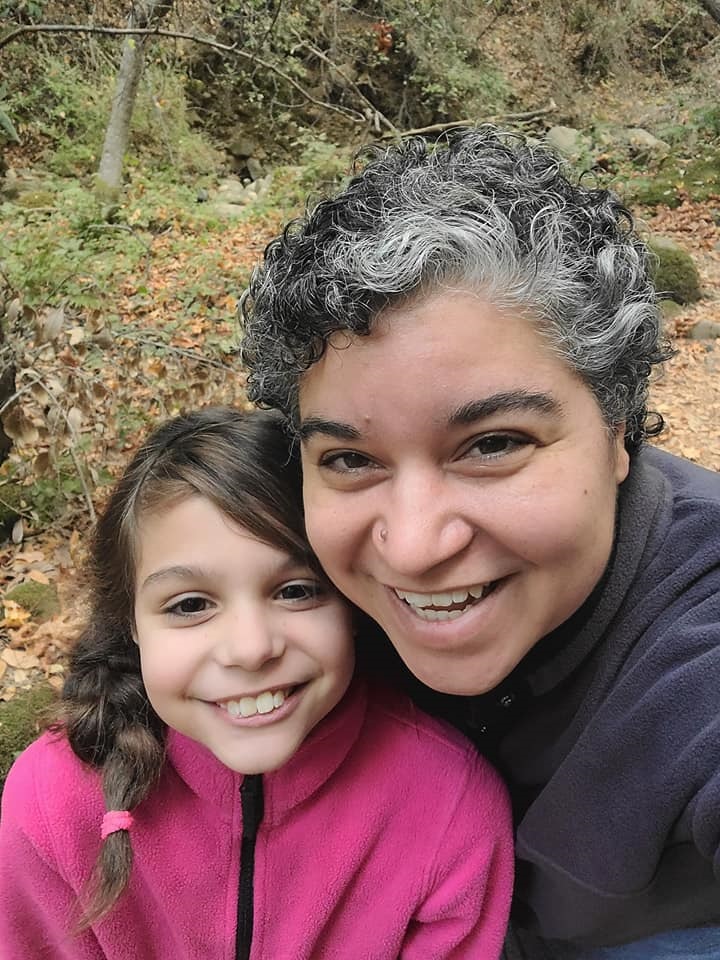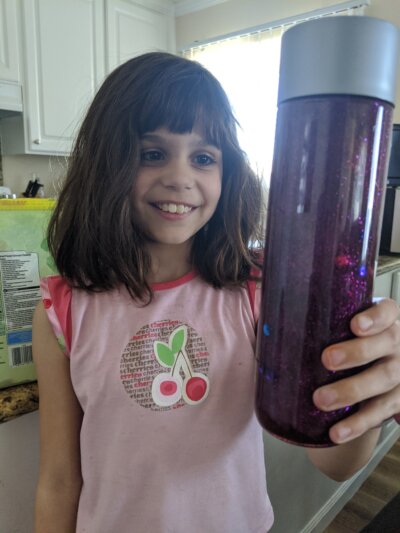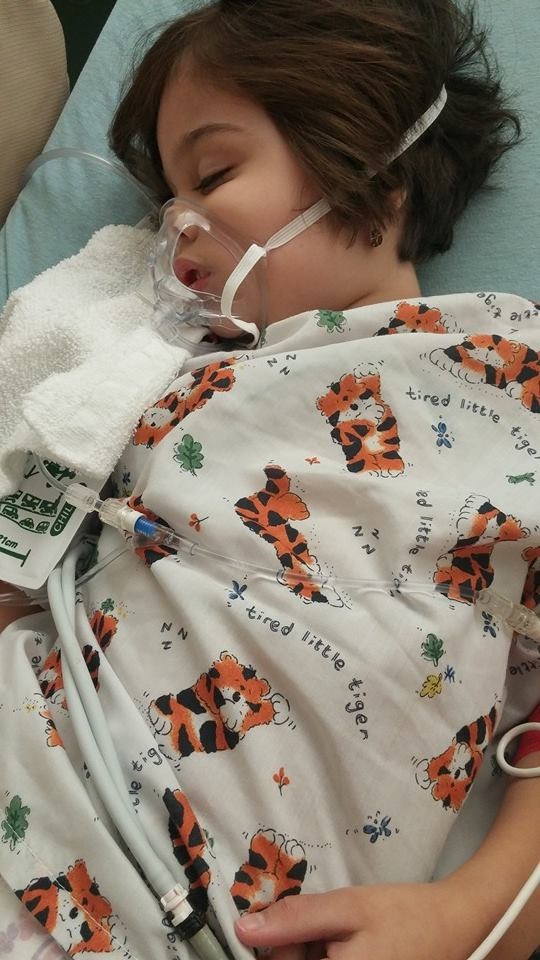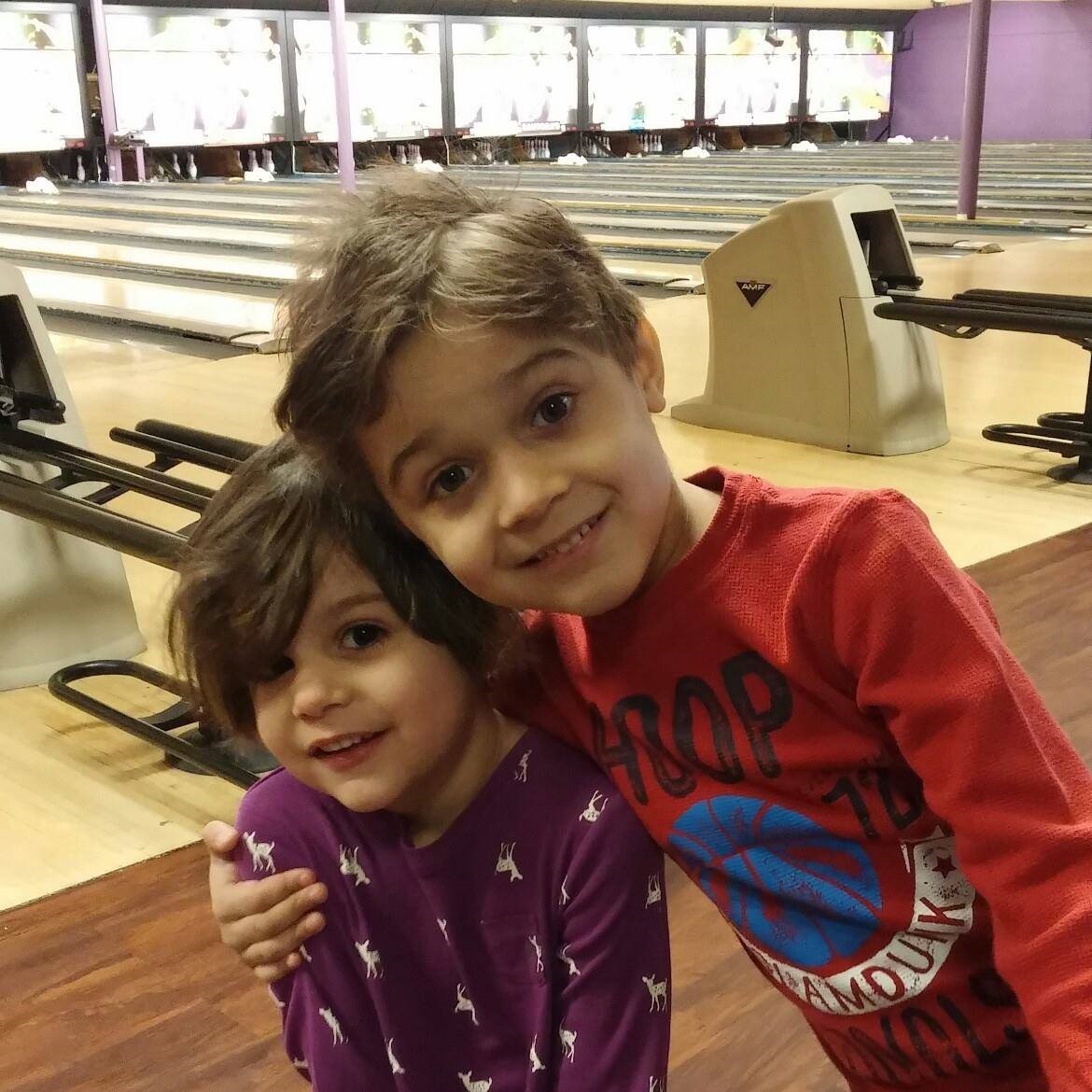Meet Kaelyn! This vibrant young girl’s Brain Story is one about living with Autism and Epilepsy. While roughly 2% of the U.S. population has been diagnosed with Autism, it has been observed that more than 75% of those diagnosed have on average, four or more other diagnosed conditions. Kaelyn’s mom spoke with us here at the United Brain Association to help bring light to the commonalities, challenges, and experiences that raising a child with Autism and Epilepsy has brought into her family’s life, and to help raise awareness for her daughter’s conditions. By sharing their Brain Story, Sonja hopes to advance the narrative surrounding Autism and Epilepsy and encourage further support for research to help others living with these disorders.
Living With Autism and Epilepsy – Kaelyn’s Diagnosis
Sonja, Kaelyn’s mom, was diagnosed with Epilepsy at a young age, but as is the case with about 50% of children diagnosed with the disorder, Sonja outgrew her Epilepsy. While Sonja’s condition did not follow her into adulthood, Kaelyn’s seizures have persisted. However, Kaelyn’s Autism diagnosis didn’t come for a few more years.
“At age 2, Kaelyn experienced a non-febrile seizure and was later diagnosed. The diagnosis of Epilepsy was reserved until she had a total of 2 afebrile seizures. These occurred within a week or so of one another. Her Autism diagnosis took several weeks of interviews and tests evaluated by a team of psychologists. We were warned that her prescribed medication often had behavioral side effects (irritableness, anger) so some of the initial atypical behaviors were definitely overlooked and attributed to the medicine. However, the differences between herself and her peers became apparent in preschool. She had been hitting developmental milestones at the tail end of “on time.”

It’s more common than not for children living with Autism to also live with comorbidities like Epilepsy, anxiety, ADHD, OCD, gastrointestinal issues, and a variety of other neurological and genetic disorders. While the exact connection between Autism patients and the higher rate of comorbid conditions being diagnosed has not been clearly linked, identifying that children with Autism have a much higher risk of comorbid disorders and diagnosis can help them receive appropriate support and treatment.
“Kaelyn’s Autism diagnosis was a relief; the Epilepsy not so much. We have to be vigilant and aware of Kaelyn’s behavior and surroundings at all times.”
Treatments and Daily Routine – Settling Into Life with a Neurodivergent Child
Sonja tells us that Kaelyn is a happy, inquisitive child, but that while she is stable, they have to be constantly aware and have to be proactive with treatment and routines. Their family is thriving through a regimented schedule and by adhering to ways that keep Kaelyn comfortable and engaged.

Do you consider Kaelyn’s symptoms to be more or less severe than most?
“Every individual is unique and different in their own way. Kaelyn is highly functional and very personable in terms of Autism, though she definitely struggles socially. Her Epilepsy presents in pretty violent and prolonged grand-mal seizures that infrequently occur, whereas some people have persistent smaller seizures. So I wouldn’t necessarily say more severe, but we have worked through some struggles to get to where we are today.”
While Kaelyn’s symptoms and behaviors limit her social engagements in many ways, her supportive and loving family have made it their priority to adapt, nurture, and fight for inclusion and support in their community. “When Kaelyn was younger, she used to adhere to regimented daily routines. These have relaxed over time, but an overall daily schedule is maintained. Dinner time family discussions are a constant; usual topics include the best and worst part of everyone’s day – Kaelyn usually starts and then asks the next person, and so forth. When Kaelyn attends school, she is enrolled in Occupational and Speech therapy; ABA therapy (Applied Behavioral Analysis) to better learn how to cope was also available when she was younger.”

Each person with Autism presents their behaviors in different ways, and Sonja’s advice for parents learning to help care and support their child with Autism is to find methods, routines, and treatments that work best for their own family. When it comes to Kaelyn’s Epilepsy diagnosis, she recommends diving in headfirst and learning as much about the disorder as possible. She says that www.cureepilepsy.org was an incredible resource for their family, and it helped fill in a lot of gaps after Kaelyn’s initial diagnosis.
“No parent goes into an Autism or Epilepsy diagnosis for their child, ready to deal with everything they entail. You may not feel strong enough to handle it now, but you will find strength and support along the way to become exactly the parent and advocate that your child needs. Ask many questions, and do lots of reading.”
As is the case with many children with Autism, social limitations can be the most challenging. As parents, we want our children to thrive, grow, experience friendships and create lasting relationships. This can be overwhelmingly difficult for individuals with neurodivergent disorders and is sometimes the most difficult challenge for youngsters with Autism. Sonja tells UBA that while Kaelyn usually does just fine in social settings, she still struggles with being in control, and enjoys her personal space. When her older brother has friends over, Kaelyn would much prefer to stay in her room, and prefers the company of children younger than she is; she especially loves babies.
Supporting Your Child – Adapting to the Challenges
Because each individual has their own behavioral and social parameters when it comes to an Autism diagnosis, there is no one size fits all treatment. After her initial Epilepsy diagnosis, Kaelyn was prescribed a common medication to help manage her seizures. This medication commonly causes behavioral side effects. While finding the right treatment, Kaelyn’s social behaviors compelled her family to question the potential that she may have Autism. After a series of aggressive psychological tests and interviews, Kaelyn’s Autism diagnosis came to light.

Sonja encourages parents to try new treatments and therapies to help their own family settle into a system and routine that helps their child thrive like Kaelyn is.
“Kaelyn has a cat who is a beautiful companion and provides some therapeutic help. In the past, Kaelyn has attended Autism classrooms: currently, her classroom is “therapy enriched,” and students with various behavioral diagnoses study in a small group of 6 with one teacher, one aide, and one psychologist. Kaelyn loves going to school, but currently, she attends virtual classes, with a 10:00 am-2:00 pm schedule. This year with COVID, grades are not being used for the district; children will advance along with their class to the next grade level at the end of the school year if they match academic progress.”
At the United Brain Association, we strive to raise awareness and fund promising research to help find cures for brain disorders and diseases worldwide. For the latest updates, news, events, and information on upcoming and ongoing research projects the United Brain Association is supporting, please sign up for our newsletter.
You Are Not Alone
For you or a loved one to be diagnosed with a brain or mental health-related illness or disorder is overwhelming, and leads to a quest for support and answers to important questions. UBA has built a safe, caring and compassionate community for you to share your journey, connect with others in similar situations, learn about breakthroughs, and to simply find comfort.

Make a Donation, Make a Difference
We have a close relationship with researchers working on an array of brain and mental health-related issues and disorders. We keep abreast with cutting-edge research projects and fund those with the greatest insight and promise. Please donate generously today; help make a difference for your loved ones, now and in their future.
The United Brain Association – No Mind Left Behind




